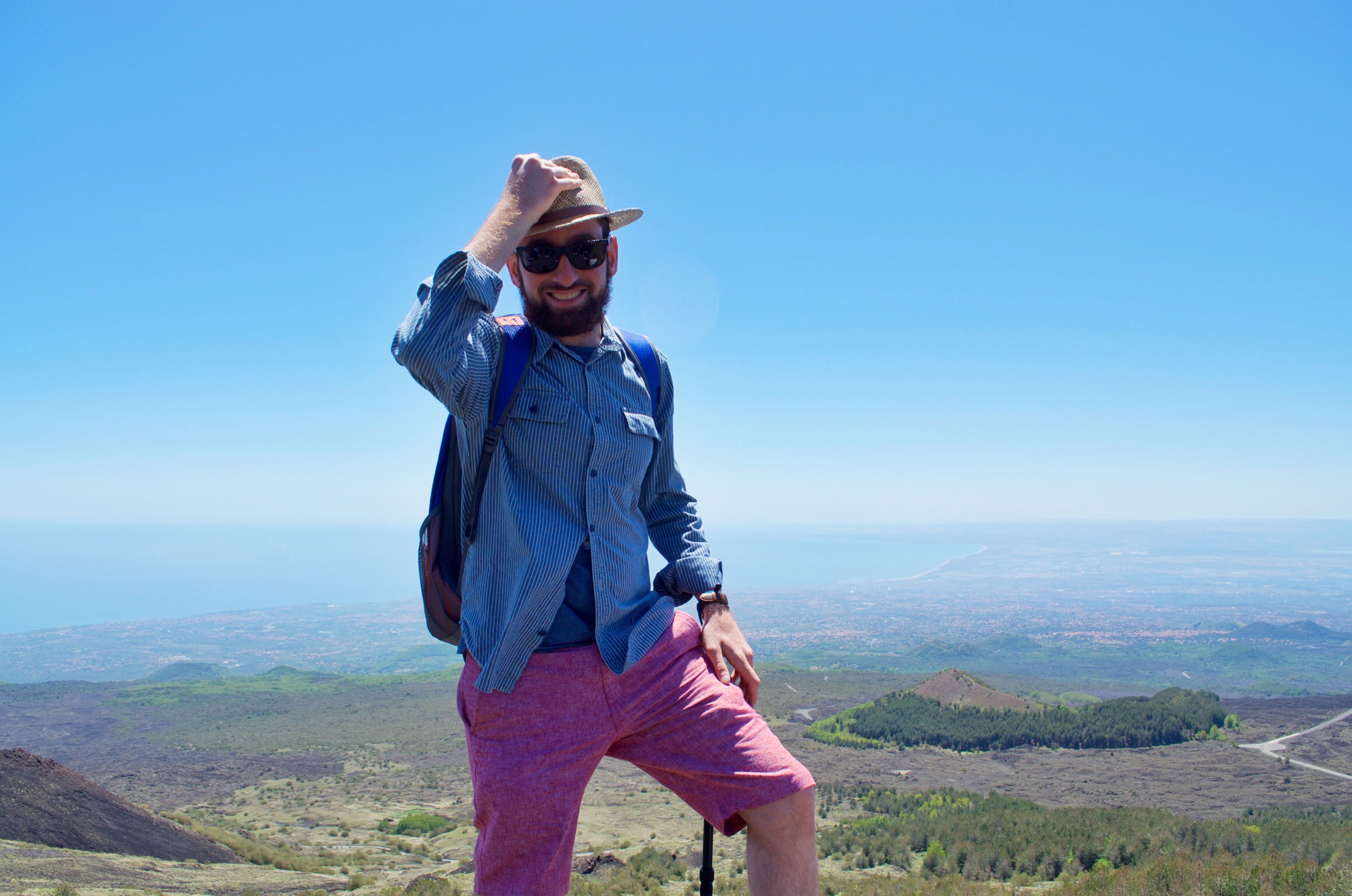Each semester we aim to showcase students, faculty and alumni of the Italian program in the Italianist Spotlight. For our inaugural Spotlight we’ve asked senior Eric Pirollo about his experiences in the program.
Eric is pursuing a double major in Economics and History and an Italian minor. He was the very first dancer sponsored by the Italian Student Society to participate in Penn State’s Dance marathon in support of the Four Diamonds Fund.

Eric representing the Italian Student Society at Penn State’s THON
What made you want to pursue an Italian minor?
I knew I wanted to study the language and that I wanted to go abroad to Italy. It didn’t make sense to not do those things and not have a minor. I wanted to study the language because growing up having dinners at my grandparents [originally from Lazio near Gaeta] made me curious to know what they were saying at the dinner table when they would switch to Italian.
Did you study abroad in Italy?
I went on the faculty lead summer trip to Reggio Calabria. I thought that a faculty lead trip would be better for me. I felt that the atmosphere was different because the faculty knows a lot more about the area and took us on all these excursions. We went to Agrigento in Sicily and I really liked that because of the Greek History. I found that being a History Major I was drawn to it. The temples were just incredible. The students all lived together in the apartments and we would just all go out and explore Reggio together. We met some students from the Italian university near by and we played soccer, saw places that we would never have known about and we would also go to the beach a lot.
I improved my Italian 119%. I learned more Italian in those six weeks than I could have ever imagined. Being in Southern Italy, no one really spoke English and so we were really forced to learn the language for basic communication and survival. At the beginning I was afraid. The first week in Sicily it was like walking on eggshells. But I kinda tried to be bolder and have the confidence. Looking back, you have to know you are going to mess up and that’s part of the experience and a part of learning. The faster you get over that, the better your experience will be and the faster the learning will be.
When did you become involved with the Italian Student Society (ISS)?
My first semester – coming in I wanted to join some sort of Italian organization on campus. My first semester in Italian 001, we were told about this “Tavola” [informal conversation hour run by the ISS] and one of my classmates went with me. I really enjoyed Tavola and I thought it was a great way to supplement my learning of the language. I came back a couple times and eventually I went to other club events and became part of the family.
When I first joined I didn’t really want to be involved with the Executive Board. I just wanted to be a member. As I progressed and matured in college, I found myself wanting to have a leadership position and give my input on club activities. I became the IM sports coordinator my junior year. One of the aspects of the club that I enjoyed most was the THON involvement. I went on some canning trips and by sophomore year I spent most of my time with ISS in the stands for THON weekend. That was something that really made me feel closer to the members of the club.
So when we continued [with THON] my junior year and we raised enough money to have dancers, I jumped at the chance to be considered one of the first-ever dancers for ISS. It was such an honor to be able to represent the organization in THON in such a huge way.
What is next for you and Italian?
In terms of speaking the language, [I’ll continue] probably with my relatives and communicate with them and other Italian family members. I hope to return to Italy and be able to communicate there and speak the language with my relatives there or be a slightly more informed tourist. Learning a language in general is what really shaped me and not only does it expose you to a new culture but I think it opens you a little bit. You can’t directly translate so as a student there are different ways to express things. It broadens your horizons.
Interview by Alessandra Cioffi, Italian Social Media Intern









